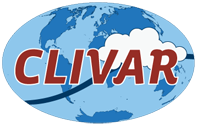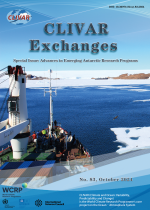Mentoring Schemes
Mentoring is a an effective way of helping people to progress in their careers. It is a partnership between two people (mentor and mentee) normally working in a similar field or sharing similar experiences. It is a helpful relationship based upon mutual trust and respect. A mentor is a guide who can help the mentee to find the right direction and help them to develop solutions to career issues. A mentor should ask questions and challenge, while providing guidance and encouragement. Mentoring allows the mentee to explore new ideas in confidence. It is a chance to look more closely at yourself, your issues, opportunities and what you want in life. Mentoring is about becoming more self aware, taking responsibility for your life and directing your life in the direction you decide, rather than leaving it to chance.
Below we have listed some mentoring schemes that you might be interested in participating in. This is not an exhaustive list and is undergoing continuous review. If you know of any other mentoring schemes that should be included on this list please email the ICPO.
| The Consortium for Ocean Leadership |
The Consortium for Ocean Leadership is a Washington, DC-based nonprofit organization that represents more than 100 of the leading public and private ocean research and education institutions, aquaria and industry with the mission to advance research, education and sound ocean policy. On its webpages are a number of resources about mentoring and mentoring schemes. |
|
MPOWIR is a community-based program that provides mentoring to physical oceanographers from late graduate school through their early careers. The overall goal of MPOWIR is to make mentoring opportunities for junior physical oceanographers universally available and of higher quality by expanding the reach of mentoring opportunities beyond individual home institutions. The aim is to reduce the barriers to career development for all junior scientists in the field, with a particular focus on improving the retention of junior women. The MPOWIR effort includes this website, mentor groups, a blog, forums at major meetings and the Pattullo Conference for female early career scientists. Additionally, MPOWIR is engaged in collecting statistics and interviews from past and present U.S. Ph.D. graduates to assess retention rates in the field, as well as to document the success of this effort. To become involved in any aspect of MPOWIR, please contact us. |
|
| UBC Science Tri-Mentoring Program |
The UBC Science Tri-Mentoring Program connects students with industry and faculty mentors in order to introduce students to the professional world. It also enables mentors to promote their industries, network with other mentors, develop new skills, and maintain a connection with the UBC community. Senior students (years 3 through 5+) are matched with a mentor (industry professionals, UBC alumni, and graduate students) from whom they receive advice, guidance, and support as they make career choices in their respective fields. The senior students in turn mentor junior students (first and second years) to help them make the most of their educational experiences with advice about studying, specializations, and other topics of interest. The program incorporates face-to-face mentoring with online contact, networking events, and connections to career development resources. Students and mentors commit to the program for one academic year. |
| MentorSET |
MentorSET is person focused. It is less of a formalized professional relationship and more of a partnership; more like a friendship. We provide guidelines and training for our mentors and mentees, but the issues discussed will vary depending upon the issues being faced by the mentee. MentorSET mentoring is: Off line: Someone from outside your reporting hierarchy at work. You can not have an open mentoring relationship if your mentor knows your boss well. In fact MentorSET goes one further and tries to find mentors from completely different organisations. Confidential: Issues between mentor and mentee are confidential. Mentee driven: The mentee must take the initative and do the leg work in the relationship. The final responsibility for actions taken, as a result of mentoring, lies with the mentee. Low-bureaucracy: We try to keep the amount of paper work down. We work with individuals and not institutions and so our mentors and mentees have to carry out the mentoring relationship in their own time. We realise that they are all busy people and so we keep the amount of paper work down to a minimum. Person focused: We realise that women, particularly working mothers, often need to juggle their working lives with responsibilities at home. We recognize that issues outside the workplace may be hampering progress at work. We match mentors and mentees using their own criteria - career considerations or aspects of their personal circumstances. We aim to connect women in SET with independent mentors who can offer advice and guidance about the issues important to them; mentors who can help with self development, suggest networking opportunities and empower mentees to make their own decisions and turn these into actions. |
| Earth Science Women’s Network (ESWN) | The Earth Science Women’s Network (ESWN) is an organization dedicated to career development and community for women in the geosciences. We have nearly 2000 members worldwide, spanning large research universities, small liberal-arts colleges, government agencies, and research organizations in the U.S. and abroad. Membership has grown through grass-roots member networking and includes upper-level undergraduates, graduate students, professionals in a range of environmental fields, scientists working in federal and state governments, post-docs, junior and some senior academic faculty and scientists. |
| National Science Foundation ADVANCE Programme |
The goal of the ADVANCE program is to develop systemic approaches to increase the representation and advancement of women in academic science and engineering careers, thereby contributing to the development of a more diverse science and engineering workforce. Creative strategies to realize this goal are sought from women and men. Members of underrepresented minority groups and individuals with disabilities are especially encouraged to apply. Proposals that address the participation and advancement of women with disabilities and of women from underrepresented minority groups are encouraged |













